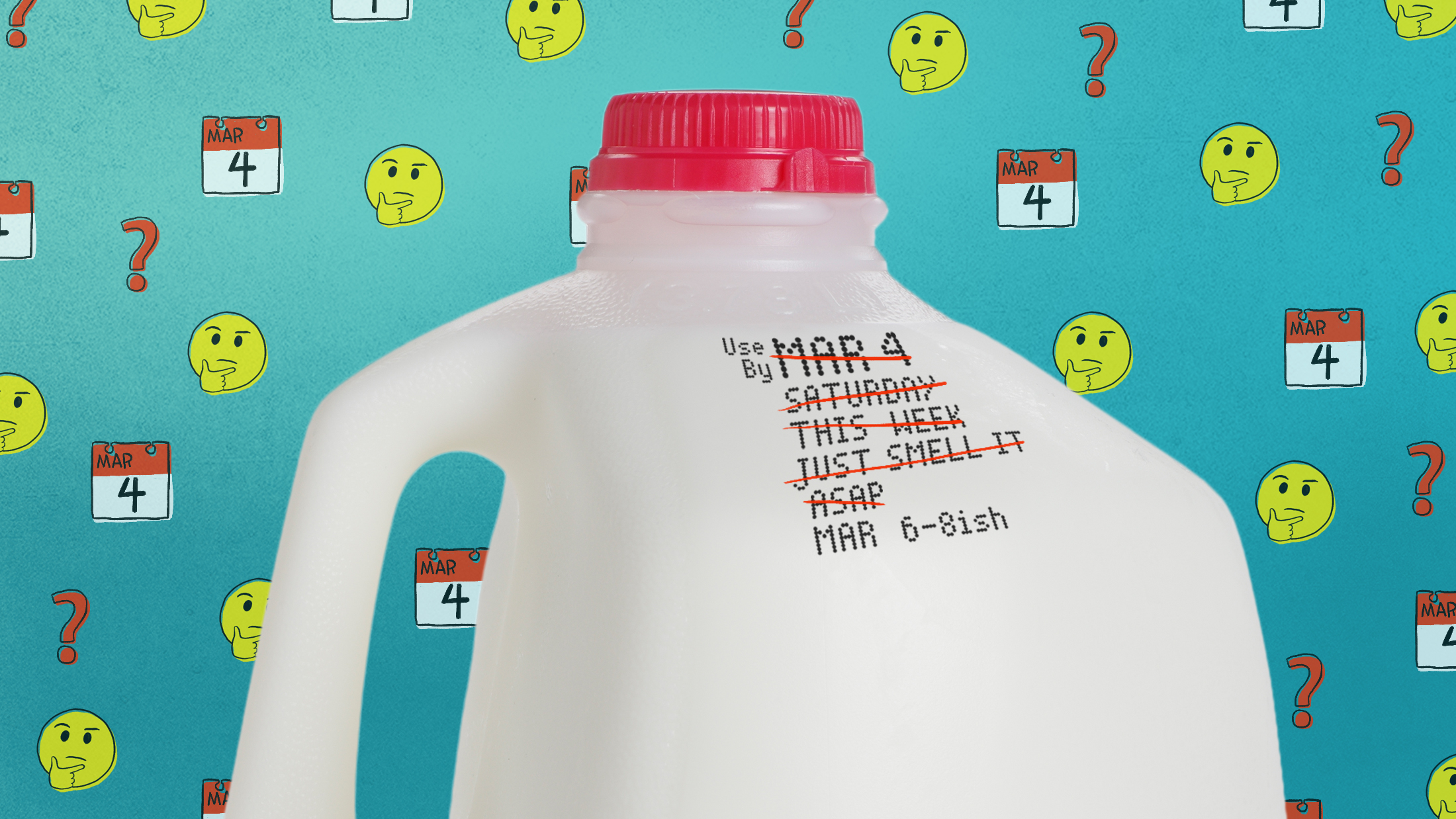How Long Should You Keep Milk Past The Carton's Date? [Updated]
Best-by dates on packages are known to contribute to food waste, as consumers see that a date has passed and toss the food from their fridge without a thought. But the dates on milk and other food packages are—with just one exception—merely guidelines, not safety proclamations.
According to the USDA's Food Safety and Inspection Service, only infant formula's dating is a hard-and-fast federal regulation. In the case of every other food product, a best-by or sell-by date is "not an indicator of the product's safety and are not required by federal law."
Milk producers apply these dates to give consumers an idea of when their milk will taste best, or when a store should stop selling the milk because it might not reach consumers in optimal freshness. Experts say the milk in the carton, though, is safe even after the stamped date has passed.
"The FDA has the right to regulate code dates, but has chosen not to since it is a quality issue, not a food safety issue," Adam Brock, the Wisconsin Milk Marketing Board's director of technical services, tells The Takeout. "So it is left to the states to develop code dates for milk. That means we've got at least 25 or so states with different code dates laws."
He says that regardless of whether a carton is stamped with a best-by date or a sell-by date, milk would still be safe beyond those dates.
"In general, you want to purchase the product before the sell by date for optimal flavor, but it is still considered food safe beyond the sell by date," Brock says.
But for just how long? That's a matter of both perception and psychology.
Researchers at Ohio State University recently published the results of a study examining how milk dates impact consumer perception of that milk's quality. The researchers gathered 88 participants who were presented with half-gallon jugs of milk that were 15, 25, 30, and 40 days past the date of bottling. Some of the jugs contained sell-by dates while others did not. They found that 64 percent of the consumers would throw away milk that was dated, while only 45.8 would throw away the same milk without a date on it.
"Date labeling doesn't tell you when a food will spoil," Brian Roe, one of the study's authors who also leads the Ohio State Food Waste Collaborative, told Ohio State's College of Food, Agricultural, and Environmental Sciences. "Consumers often view dates as if they indicated health or safety, but those dates are really just about the quality of a product determined by manufacturer."
Wisconsin Milk Marketing Board's Adam Brock says he'd generally give a milk carton five days past its sell-by or best-by date, but that the industry standard says milk will be fine up to a week past those dates.
To extend the life of your milk, store it between 36 and 40 degrees and keep the cap on tight to prevent fridge odors from creeping in. Other than that, trust your nose, but know that even spoiled milk isn't likely to make you sick.
And then, of course, there's the option to circumvent spoilage altogether. According to the National Dairy Council, it is safe to freeze your milk, but there are a few important caveats. You need to pour some out of the jug first, because the contents will expand when frozen. The Council also suggests reserving milk in multiple small containers, which will allow it to thaw faster once you decide to use it. To thaw, let the milk sit in the fridge for a day or two, then give it a really good shake before serving so that the fats (which separate from the water content in the freezer) can get reincorporated.
